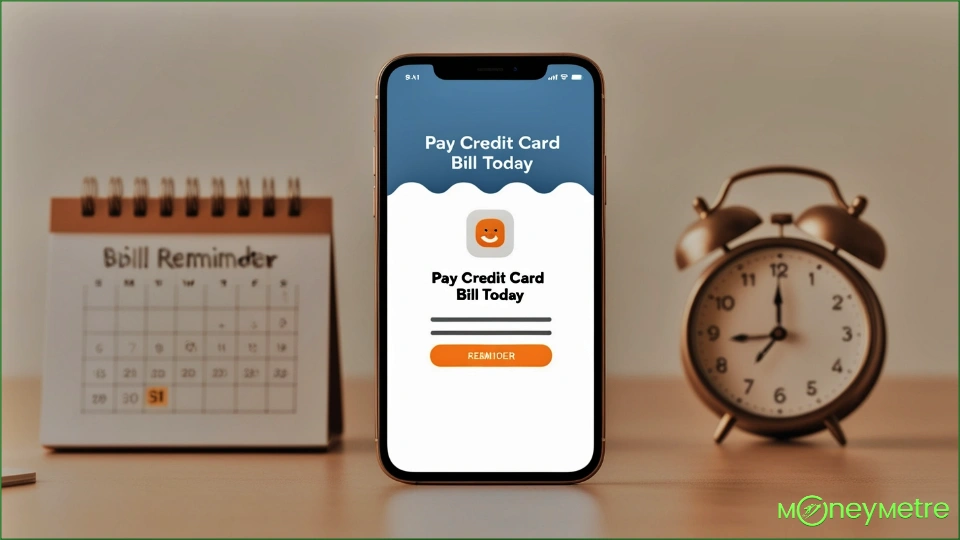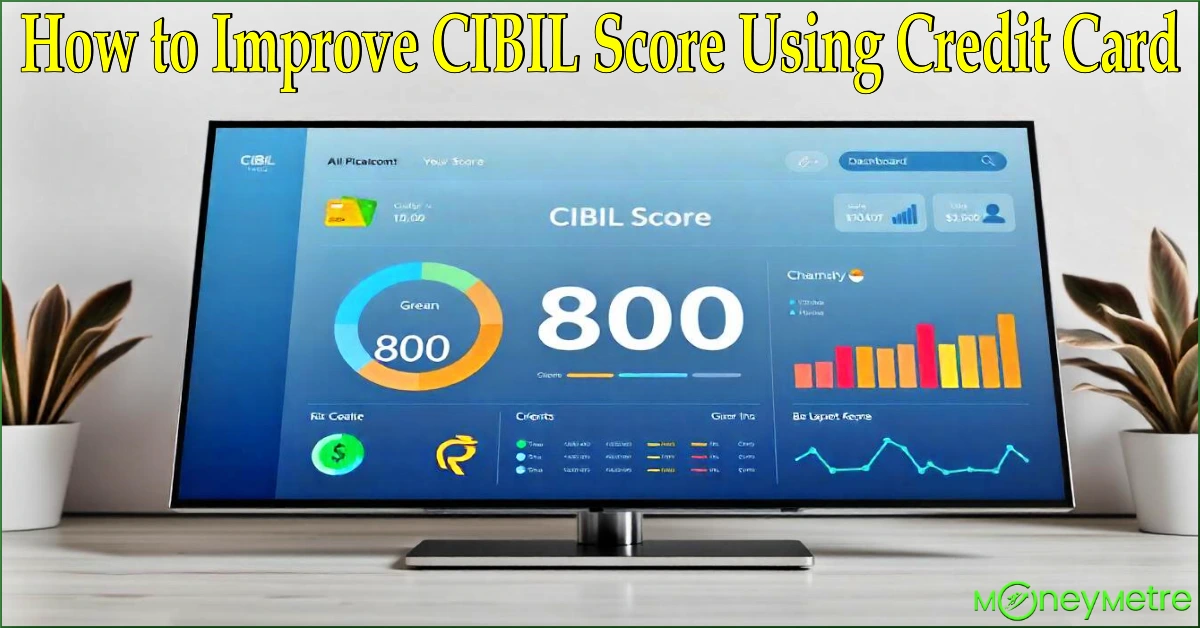If you’re looking for ways on how to improve CIBIL score using credit card, you’re not alone. In India, your CIBIL score is an essential factor in determining your creditworthiness, and a high score can open doors to better interest rates, loans, and even quicker approvals.
For many people, using a credit card responsibly can be one of the most effective methods to improve their CIBIL score. In this guide, we’ll cover everything you need to know about CIBIL scores, how credit cards work, and practical steps you can take to improve your score over time.
What is a CIBIL Score?
A CIBIL score is a three-digit number that ranges from 300 to 900, which reflects an individual’s credit history and financial behavior. It is issued by TransUnion CIBIL, one of India’s leading credit information companies.
When you apply for loans, credit cards, or even rent an apartment, lenders use this score to evaluate how reliable you are with credit. Here’s a breakdown of what CIBIL scores typically indicate:
- 750 and above – Excellent: This score reflects a strong credit history and responsible financial behavior, making it easy to get loans at favorable terms.
- 650 – 749 – Good: A decent score that qualifies for loans, but with potentially higher interest rates.
- 550 – 649 – Fair: Lenders may consider giving credit, but you may face restrictions.
- Below 550 – Poor: Indicates risky financial behavior, often leading to loan rejections.
Why is Your CIBIL Score Important?
Having a high CIBIL score:
- Increases your loan eligibility – Banks and financial institutions are more likely to approve your loans if you have a strong score.
- Secures lower interest rates – A high score often means that you’re a low-risk borrower, so lenders might offer better interest rates.
- Enhances credit card offers – People with good scores receive better credit card offers, higher limits, and more rewards.
- Ensures quicker approvals – With a good score, banks are more likely to approve your loans or credit cards faster.
What is a Credit Card?
A credit card is a financial tool that allows you to borrow funds from a bank up to a certain limit to pay for purchases. Each month, you are required to repay the borrowed amount, either in full or in installments, along with applicable interest.
Responsible use of a credit card can positively impact your CIBIL score, making it an essential tool for building or improving your credit score.
Key Benefits of a Credit Card:
- Builds credit history – Every payment and usage affects your credit score.
- Provides financial flexibility – You can make purchases and pay later.
- Offers rewards – Many credit cards provide cashback, discounts, and reward points.
How to Improve CIBIL Score Using Credit Card: 7 Effective Strategies
Here are some essential tips on how to improve CIBIL score using a credit card effectively:
1. Pay Your Bills on Time

Timely payment is one of the most critical factors in improving your CIBIL score. When you consistently pay your credit card bills on time, it reflects positively on your credit report. Late payments, however, can drastically reduce your score.
Tips:
- Set up automatic payments to avoid missing due dates.
- Pay at least the minimum amount due, though paying in full is always better.
2. Keep Credit Utilization Low
Credit utilization is the ratio of your credit card balance to your credit limit. A high credit utilization ratio suggests that you rely too heavily on credit, which may harm your score. Ideally, your credit utilization should be below 30% of your total limit.
Example: If your credit card limit is ₹1,00,000, try not to exceed ₹30,000 in outstanding balance.
3. Increase Your Credit Limit (But Use Wisely)
By requesting a credit limit increase, you can reduce your credit utilization ratio without cutting down on expenses. However, make sure that you don’t use the additional limit as an excuse to spend more.
Remember: Higher credit limits can benefit your CIBIL score only if you manage your expenses wisely.
4. Avoid Applying for Multiple Credit Cards
Each time you apply for a credit card, it results in a “hard inquiry” on your credit report, which can slightly lower your score. Having multiple credit cards can also increase the risk of overspending and missing payments.
Solution: Limit the number of credit card applications and choose cards based on their benefits and your spending needs.
5. Don’t Close Old Credit Accounts
An older credit card can boost your credit history, which positively impacts your CIBIL score. Closing old accounts reduces your average credit age, potentially affecting your score negatively.
Tip: Even if you’re not using an old credit card, consider keeping it active with a small purchase now and then.
6. Check Your Credit Report Regularly
Errors in your credit report can also affect your score. Regularly checking your report allows you to identify and correct errors, like wrongly reported missed payments, which could be pulling down your score.
To check your CIBIL score for free, you can visit the official CIBIL website.
7. Pay Off Debt Strategically
If you have outstanding debt, paying it off on time or early can help increase your score. Credit card debt can impact your score significantly, so prioritize paying off high-interest debt.
Using these strategies, you can work towards improving your CIBIL score with the responsible use of a credit card. By maintaining disciplined credit behavior, you’ll be on the path to a high score, greater financial opportunities, and peace of mind.
Conclusion

Learning how to improve CIBIL score using credit card is a practical approach to achieving financial stability and credibility. By following these strategies, you can leverage your credit card as a powerful tool to build and improve your CIBIL score over time.
From paying bills on time to keeping your credit utilization low, small and consistent changes to your financial habits can yield significant results. With a good CIBIL score, you open yourself up to better financial opportunities, whether it’s lower loan interest rates or exclusive credit card offers.
Read Also: How to Improve CIBIL Score After Credit Card Settlement: 8 Best Methods
FAQs on “How to Improve CIBIL Score Using Credit Card?”
-
How often should I check my CIBIL score?
It’s advisable to check your CIBIL score at least once every six months to ensure there are no errors and to monitor your credit progress.
-
Does owning multiple credit cards affect my CIBIL score negatively?
Not necessarily. What matters more is how you use them. Keeping balances low and paying bills on time can actually help improve your score.
-
Can I improve my CIBIL score without a credit card?
Yes, you can improve your score by repaying loans on time, maintaining a good debt-to-income ratio, and checking your credit report for errors.
-
Does closing a credit card hurt my CIBIL score?
Yes, closing an old credit card can reduce your average credit history age, which may lower your score.
-
How much time does it take to improve the CIBIL score?
With consistent positive credit behavior, you can see noticeable improvements within 4-6 months, though substantial improvements may take longer.
-
Where can I get a free credit report?
You can get a free credit report once a year from CIBIL’s official website.
Read Other Latest Posts Below







